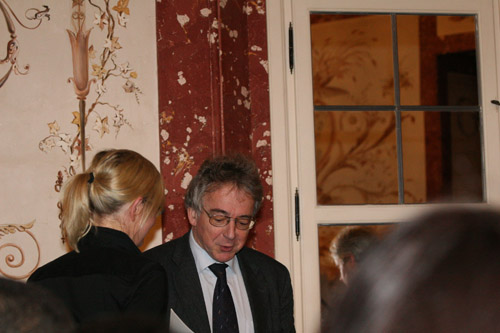
Παλεύοντας με τον πόλεμο κατά της φτώχειας, με υψηλής ποιότητας προγράμματα προσχολική εκπαίδευση είναι ένα θέμα που συζητήθηκε και υποστηρίχθηκε από πολλούς συντελεστές Η Σφαιρική Αναζήτηση Για την Εκπαίδευση σειρά. Researchers, educators and policy makers have argued that vital learning can and should begin before age 5. When schooling starts for poor children at kindergarten or first grade they have already missed out on vital opportunities to develop skills needed to help them thrive academically, socially, physically and emotionally in their early years of learning.
Σήμερα στο Η Σφαιρική Αναζήτηση για Εκπαίδευση, it is our honor to share the views of Professor Dr. Wolfgang Schneider on pre-school learning and additional matters related to the German and other education systems.
Ο Δρ. Wolfgang Schneider is currently Professor of Psychology in the Department of Psychology, University of Wurzburg, Γερμανία. His research interests include the development of memory and metacognition, giftedness and expertise, the development of reading and spelling, as well as the prevention of reading and math difficulties. He was Vice President and President of the German Psychological Society (2000-2004), and also Vice President of the University of Würzburg (2004-2009). He is author and co-editor of about 40 βιβλία, Συμπεριλαμβανομένων Ανάπτυξη μνήμης μεταξύ δύο και είκοσι, which he co-authored with Michael Pressley. He is currently President of the International Society for the Study of Behavioral Development (ISSBD).

Υπάρχουν μια σειρά από εξέχοντα θέα στις ΗΠΑ ότι η προσχολική εκπαίδευση αποτελεί σημαντική διαφορά στην επιτυχία των παιδιών στο δημοτικό σχολείο. What are the essential elements of this education and what is the impact on child development? Do you believe it can have a significant impact on the achievement gap between affluent and poor children?
Early language skills have to be developed. This is something that the German government is trying to intensify at the moment. We have made some progress regarding the phonological training programs in our country. We also have evidence that training children in phonological awareness helps them to develop the first stages of reading and spelling in school. We have evidence regarding early math training programs too and there are a few rather effective approaches there.
So there has been evidence that early pre-school programs make a difference, particularly for kids at risk. We did a couple of studies with children at risk and compared their improvement with normally developed children. We found that children at risk really can catch up if they have training in the early years. And when they are able to move up to the same level as normal kindergarten kids, they seem to be able to develop well in school.
What is the nature of the kindergarten training programs that you designed and what impact has it had on the mental development of children? Are the programs equally as effective with affluent and poor?
We designed a popular training program with two components. One focuses on phonological awareness in both the broad and narrow sense. Phonological awareness in the broad sense would be something like rhyme identification or syllable segmentation. Phonological awareness in the narrow sense means identification of phonemes in syllables. We found it was possible to get German speaking kindergarten children to identify phonemes in syllables and words, and those kids who satisfied that criteria were able to acquire reading and spelling skills earlier than usual. We combined the phonological awareness training with letter-sound coordination training. And so for some frequently used letters, διδάξαμε στα παιδιά πώς μπορούν να συνδεθούν φωνήματα. This helped the children pick up the letter phonemes training in school. We had control groups in our studies that did not receive phonological training but participated in the usual kindergarten program. Thus we were able to compare kids who were trained and kids who did not participate. We discovered that the trained kids had an advantage by the end of kindergarten and kept that advantage during their first years in school. It’s very important that there was a long lasting effect here. Particularly with kids who had poor initial skills.
Right now we are developing an early educational program for kindergarten children for all 16 states in Germany. We will finish our proposal at the end of 2012.
Do you think that the PISA test is an effective measure of the full range of mental aptitudes of students?
I don’t think it’s an effective measure of the full range of mental aptitudes. It does give you a good impression of 15-year-old students’ reading skills, math skills and their ability to cope in the science area, but we don’t get any evidence about their intellectual abilities. Σε 2000 συμπεριλάβαμε ένα μέτρο της μη-λεκτικής νοημοσύνης σε μια γερμανική επέκταση της μελέτης PISA οποία συνέκρινε τις επιδόσεις μεταξύ των 16 Γερμανικά κράτη και η οποία βασίστηκε σε ένα μεγάλο δείγμα περίπου 50,000 φοιτητές. Όταν αξιολογείται ο αντίκτυπος των πληροφοριών σχετικά με τις επιδόσεις στα μαθηματικά, ανάγνωση και την επιστήμη, καταλάβαμε ότι η μη-λεκτική νοημοσύνη ήταν ένας ισχυρός προγνωστικός παράγοντας στις περισσότερες από αυτές τις δοκιμές.
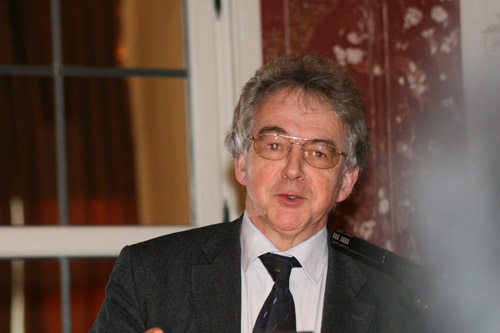
Do you think that in some countries, teaching to the PISA test is now occurring?
I think that this probably does happen and I think that is a problem. Ωστόσο,, I also believe that the way the PISA organization process works makes it difficult. In Germany for example, schools are selected at random. And there is almost no chance for a school to escape once it has been selected. I suppose there could be a couple of schools in the sample that have practiced for the test but we don’t think that would apply to the entire sample.
Do you think that some countries have educational curricula that provide better preparation for the test than others? Does it surprise you that “grinder” countries like South Korea and less structured countries such as Finland both do very well on the test?
As to the impact of different educational systems on the results of the PISA test, it seems very difficult to come up with clear-cut conclusions. You have a diverse group of countries included in the PISA sample with different educational systems, so you have to be very careful when you compare. Ωστόσο,, the achievement patterns observed for the various PISA samples that we’ve seen from 2000 να 2009 seem to be rather consistent for most of the countries participating. The countries at the top for reading and math, such as Finland and the Asian countries, are famous for their superior curricula in these domains and their competent training programs. So their excellent performance does not seem to be surprising.
The Finnish educational system really focuses on all children, including the weak children, στις τάξεις. Ως συνέπεια, the achievement variance in Finnish children is much smaller than the variance in children in most other countries. So Finland is successful with bringing all their children up to a high level, which many other countries do not achieve.
When you look at the instructional procedures in a country like South Korea, you see that there is a lot of drilling and practice and very heavy workloads on the students. This is something we do not have in Germany. So I think the quantity of instruction in South Korea makes a big difference here. In former times, Benjamin Bloom in the US already noticed that the quantity of instruction and the time given to reach a criterion is usually a good indicator of student outcomes.
What are the key strengths and weaknesses of the German educational system as you see it?
In Germany we have different curricula in 16 different states. A couple of states, including Bavaria and Saxony, seem to do very well and may even compare with the Finnish achievement scores. The teachers follow the curriculum pretty strictly, which seems to make an impact. We have systematic findings that show while some of our states perform very well others perform poorly. Each state has its own policy. The policies differ a lot, and the states are not able to agree on a common curriculum. Our federal ministry of education has tried to change that but it is difficult as our law states that education must be linked to the state policy.
Ποια είναι η μείξη των τεχνών με το συνηθισμένο πρόγραμμα σπουδών στη Γερμανία? Πώς να κάνετε το ρόλο Βλ των τεχνών στην πρωτοβάθμια και δευτεροβάθμια εκπαίδευση?
I believe the arts are underestimated in our system. Whenever teachers have to cut hours in a curriculum, the arts get cut first. We have to change that. I believe the arts are important. Νομίζω ότι θα πρέπει να ξεκινήσουμε μια εκπαίδευση τεχνών στην αρχή του δημοτικού σχολείου, which is not the case now. The major argument against the arts is always that kids shouldn’t do too much in the early years of their education where the emphasis must be on reading, γραφή και τα μαθηματικά. Thirty years ago this was not the case as music education started earlier. Now that has changed and it is not a good development.
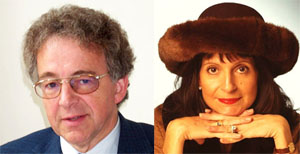
Φωτογραφίες ευγένεια του καθηγητή Δρ. Wolfgang Schneider.
Στο παγκόσμιο Αναζήτηση για Εκπαίδευση, μαζί μου και παγκοσμίως γνωστή ηγέτες σκέψης συμπεριλαμβανομένου του Sir Michael Κομμωτήριο (Ηνωμένο Βασίλειο), Ο Δρ. Michael Block (ΗΠΑ), Ο Δρ. Leon Botstein (ΗΠΑ), Καθηγητής Clay Christensen (ΗΠΑ), Ο Δρ. Linda Ντάρλινγκ-Hammond (ΗΠΑ), Ο Δρ. Madhav Chavan (Ινδία), Ο καθηγητής Michael Fullan (Καναδάς), Ο καθηγητής Howard Gardner (ΗΠΑ), Ο καθηγητής Yvonne Hellman (Η Ολλανδία), Ο καθηγητής Kristin Helstad (Νορβηγία), Jean Hendrickson (ΗΠΑ), Καθηγητής Rose Hipkins (Νέα Ζηλανδία), Καθηγητής Cornelia Hoogland (Καναδάς), Η κ. Chantal Kaufmann (Βέλγιο), Ο Δρ. Eija Kauppinen (Φινλανδία), Υφυπουργός Tapio Kosunen (Φινλανδία), Ο καθηγητής Dominique Λαφοντέν (Βέλγιο), Ο καθηγητής Hugh Lauder (Ηνωμένο Βασίλειο), Καθηγητής Ben Levin (Καναδάς), Καθηγητής Barry McGaw (Αυστραλία), Shiv Nadar (Ινδία), Καθηγητής R. Natarajan (Ινδία), Ο Δρ. PAK NG (Σιγκαπούρη), Ο Δρ. Denise Πάπα (ΗΠΑ), Sridhar Rajagopalan (Ινδία), Ο Δρ. Diane Ravitch (ΗΠΑ), Sir Ken Robinson (Ηνωμένο Βασίλειο), Καθηγητής Pasi Sahlberg (Φινλανδία), Andreas Schleicher (PISA, ΟΟΣΑ), Ο Δρ. Anthony Seldon (Ηνωμένο Βασίλειο), Ο Δρ. David Shaffer (ΗΠΑ), Ο Δρ. Kirsten Μοναδική Are (Νορβηγία), Στήβεν Spahn (ΗΠΑ), Yves Theze (Γαλλικό λύκειο των ΗΠΑ), Ο καθηγητής Charles Ungerleider (Καναδάς), Ο καθηγητής Tony Wagner (ΗΠΑ), Sir David Watson (Ηνωμένο Βασίλειο), Καθηγητής Dylan Γουίλιαμ (Ηνωμένο Βασίλειο), Ο Δρ. Mark Wormald (Ηνωμένο Βασίλειο), Ο καθηγητής Theo Wubbels (Η Ολλανδία), Ο καθηγητής Michael Young (Ηνωμένο Βασίλειο), και ο καθηγητής Minxuan Zhang (Κίνα) καθώς εξερευνούν τα μεγάλα ζητήματα της εκπαίδευσης εικόνα που όλα τα έθνη αντιμετωπίζουν σήμερα. Η Παγκόσμια αναζήτηση για την Εκπαίδευση της Κοινότητας Σελίδα
C. M. Rubin είναι ο συγγραφέας των δύο πολυδιαβασμένα online σειρά για την οποία έλαβε ένα 2011 Βραβείο Upton Sinclair, “Η Σφαιρική Αναζήτηση για Εκπαίδευση” και “Πώς θα μας Διαβάστε?” Είναι επίσης ο συγγραφέας του μπεστ σέλερ τρία βιβλία, Συμπεριλαμβανομένων Η Ρεάλ Αλίκη στη Χώρα των Θαυμάτων.


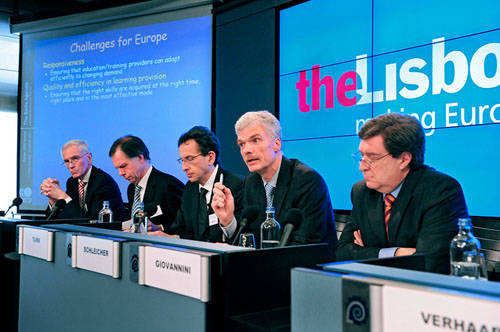
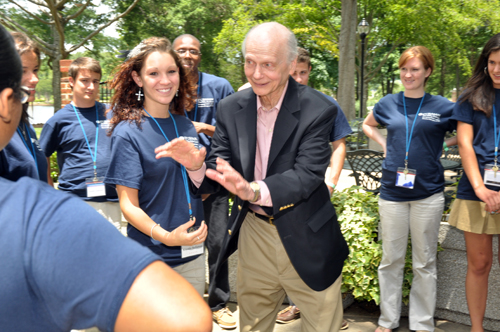


Πρόσφατα σχόλια